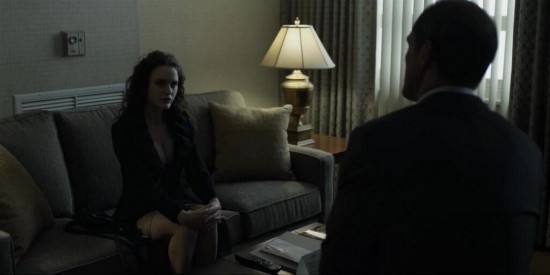11 Things I Learned From LACMA's Conversation With David Fincher About 'House Of Cards'
Last night I attended a screening of the first two episodes of House of Cards, followed by a conversation with David Fincher. I had already watched the entire series on Netflix, but it was great to see the show on a huge screen. Unlike other shows I've seen in special theater broadcasts, House of Cards felt more like a movie in the large format. Elvis Mitchell hosted the conversation at LACMA as part of Film Independent. While I usually like Mitchell's Q & A's, this one was a bit subpar as Mitchell tried to focus on his interpretations of characters and moments in the series, and Fincher wasn't willing to consider those ideas as his own. But I did learn 11 interesting tidbits about Fincher and the series. Read them now after the jump.
Please be warned, items #1 and 2 contain potential spoilers for the first two episodes.
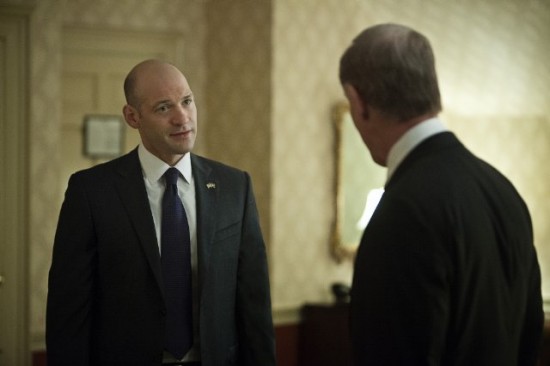 1. Peter Russo Was Supposed To Have a Much Smaller Role In The Story.Corey Stoll's character Peter Russo was originally designed to be "much more tangential" to the story's long plotline. But when the character and actor began to impress the producers, they decided to expand his role, greatly effecting the blueprints of the future of the series.
1. Peter Russo Was Supposed To Have a Much Smaller Role In The Story.Corey Stoll's character Peter Russo was originally designed to be "much more tangential" to the story's long plotline. But when the character and actor began to impress the producers, they decided to expand his role, greatly effecting the blueprints of the future of the series.
"A lot of the stuff we planned for episodes 8, 9 and 10 started being cannibalized and moved forward to episodes 2, 3, and 4 [of season 2]. And you get to do that, as opposed to a feature film where the blueprint is a blueprint and its about executing that. With this, the petri dish is alive and constantly evolving."
(photo thanks to terytrixie)
2. A Character Who Was Only Suposed To Appear Once Accidentally Became A Reoccurring Character.
When David Fincher was casting the pilot episode, Rachel Brosnahan earned the one-off role as the teenage prostitute character Rachel Posner with only a two-line audition. Because of the expansion of the Russo storyline, Rachel was brought back for the larger storyline but the producers didn't even know if she would be able to handle to larger role. She ended up appearing in 7 of the 13 episodes.
"Beau Willimon, who is the voice of the show, wrote this incredibly huge character for her and we were going, 'we're not sure if Rachel is gonna do this. Like, we brought her in to open the glove compartment and go 'here you go'. And she's amazing. But we sat there going, 'we can't suddenly change people and audition someone new. And there are these five-six page scenes and we gave it to someone who came in to just play a one-off, but you go, let's follow this and see where this goes."
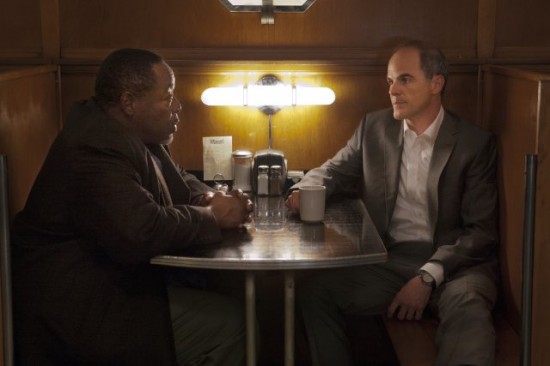 3. Every character is their own protagonist.
3. Every character is their own protagonist.
One of the most interesting quotes Fincher gave during the conversation was one of the notes that he gives all of his screenwriters. In this series it seems to apply even more than it does in most films.
"The thing I always say to any writer that I'm working with is: Just make sure that in any argument, EVERYONE is right. I want every single person arguing a righteous side of the argument. That makes interesting drama."
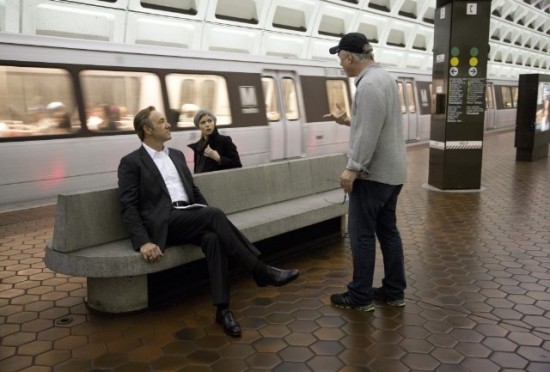 4. Fincher didn't compose his episodes for television but for larger High Definition displays.
4. Fincher didn't compose his episodes for television but for larger High Definition displays.
The behavior of a lot of the characters on the show is sometimes sinister or filled with lies, and Fincher wanted to show this more in medium shots than close-ups.] Fincher doesn't even consider House of Cards a television show, instead referring to it as "an interrupted movie." Wonder what the Director's Guild would think of that?
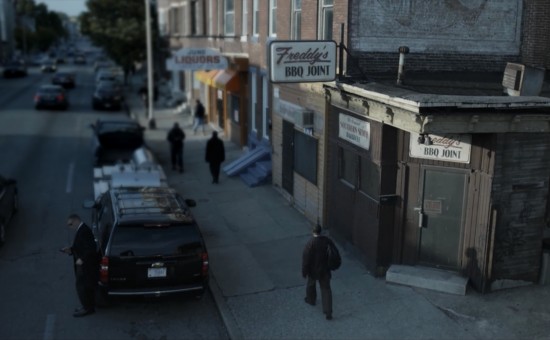 5. The pilot script was actually broken down into the first two chapters (or episodes).
5. The pilot script was actually broken down into the first two chapters (or episodes).
"If you just watched the first hour, it ends in a weird place. It ends in an alley with a guy eating ribs at seven o'clock in the morning. So I've always seen (episodes) one and two as companions, dovetailing the other. I don't think of it as a cliffhanger. That [word] makes me feel a little dirty."
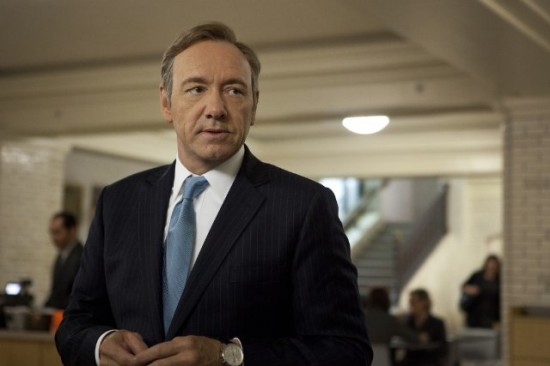 6. Fincher would not have made House of Cards Without Kevin Spacey
6. Fincher would not have made House of Cards Without Kevin Spacey
When Fincher read the pilot script, he couldn't think of anyone but Kevin Spacey for the main role. "We needed a cunning linguist, we needed someone who could run for public office, we can see him shaking hands." When he met with Spacey he even told him that if he didn't get Kevin for the role, he wasn't going to make it. Spacey was very interested but was just about to go do thirteen months of Richard the Third. He asked Fincher if he could wait a year for him to play the part, and they did.
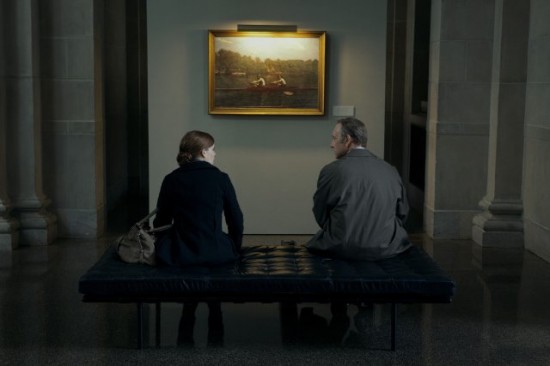 7. Fincher describes Spacey's character Francis Underwood as a Machiavellian who is taking you under his wing, a poet figure but he always has secrets.
7. Fincher describes Spacey's character Francis Underwood as a Machiavellian who is taking you under his wing, a poet figure but he always has secrets.
"He's not Kasparov (chess grandmaster), he doesn't see four moves ahead of his opponent. He kind of comes into a room and knocks over the chess board, says 'oh, was somebody playing this?' And he puts it back the way he wants it to be. And he creates chaos and fucks things up to make people look a certain way and he is able to work his magic to make people think it was there idea."
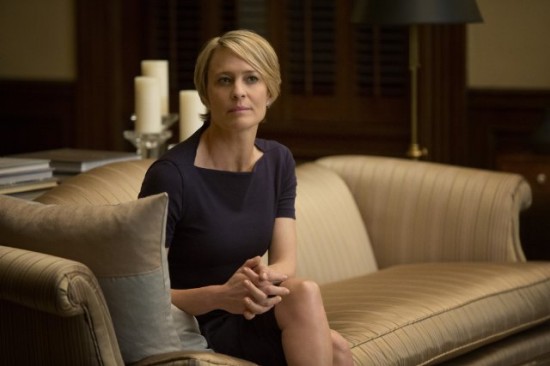 8. Claire Underwood is Fincher's Lady MacBeth.
8. Claire Underwood is Fincher's Lady MacBeth.
Fincher approached Robin Wright about the series while working on The Girl with the Dragon Tattoo in Stockholm, asking if she would like to play his Lady MacBeth. Wright read the pilot script and came to Fincher with a smile and said "I like this woman".
"She doesnt play cast iron bitches much. I mean, she is formidable but I think she was kind of flattered that I saw her as something other than a princess. ... [the character is] not a scold, but you want the idea that her favor means something to him."
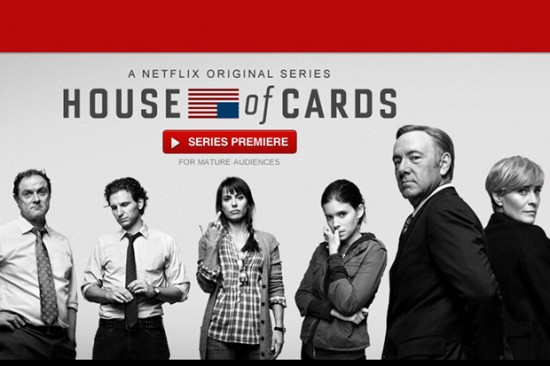 9. David Fincher likes the idea of binge watching.
9. David Fincher likes the idea of binge watching.
While he hates the word "binge" he likes the idea that someone can make their own journey through the story on their own time. He personally has no preference, sometimes watching lots of tv and other times taking his time of putting on shows as a kind of "moving wallpaper" for the background. When the idea that the whole first season was going to be released online in one huge dump, some people who were involved in the production thought it was a bad idea, but not Fincher.
"I thought it was cool. I thought it would be okay. I thought it was the right idea. Thats how I find saw Breaking Bad, I saw four. You can experience it in a different way, you can decide how deep you want to go, which I thought 'seems very modern'. ... "I like the idea of movie literature, of having something in chapters and deciding 'you know, I do have more time, I'd like to see how this resolves itself, but I can also put the book by the bedside table and come back to it.'
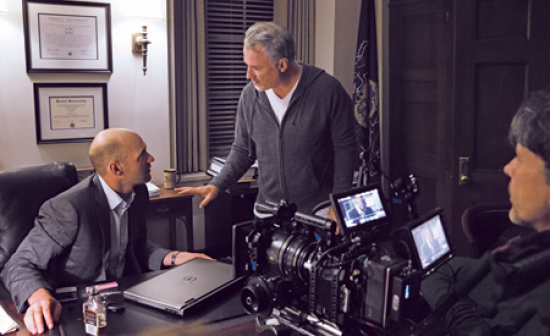 10. Feature Film Directors Struggled To Adapt To Television Drama's Slower Pace.
10. Feature Film Directors Struggled To Adapt To Television Drama's Slower Pace.
Fincher and the other feature film directors who directed episodes in this series found out how to shoot more of the moments that would be cut from movies.
"Our discipline is so much about: oh s*** we don't need that, don't need that, he doesn't need to get out of the car and go into the coffee shop, we can start with him in the coffee shop, he's paying, he's drinking his coffee. We're always trying to put 10 pounds of s*** in a 5 pound bag and the tv guys are like 'No, let it take some time.'" ... "The reason I wanted to do [House of Cards] is that I've really found movies to become charted like roller coasters — it's like, who cares who they are, lets get to the buildings exploding. when is the space junk gonna fall out of the sky and kill these people? And the thing about The Sopranos and Breaking Bad, television shows I've enjoyed, is that they have time for people to say 'I'm about this and these are the limits of what I'll do' and then we watch them go beyond that. Because we spend so much time with them, we get to see them do the opposite of what they say." ... "We're use to dealing with Hollywood studio executives who are tweeting while they're watching a rough cut, 'Well, he's not very likable is he?'
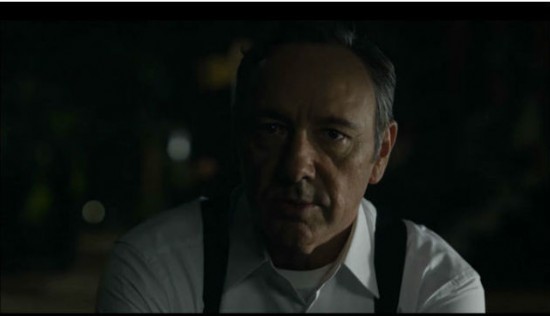 11. They never planned to show the dog who gets hit by a car in the opening scene.
11. They never planned to show the dog who gets hit by a car in the opening scene.
Spacey did have a stuffed dog to work against while filming the sequence, and that stuffed stand-in can kind of be seen in the wide shot when he comes out of the house.
"This scene definitely separates the men from the boys because if you can follow this character to scene two, we have a shot at keeping you entertained. ... There is a small percentage of the American public that confuses that moment with advocacy, and that isn't intended."
Other Notes
It's worth noting (because someone in the comments will likely ask): Fincher didn't talk much about the future of the series, and also didn't bring up any of his past or future film projects.

